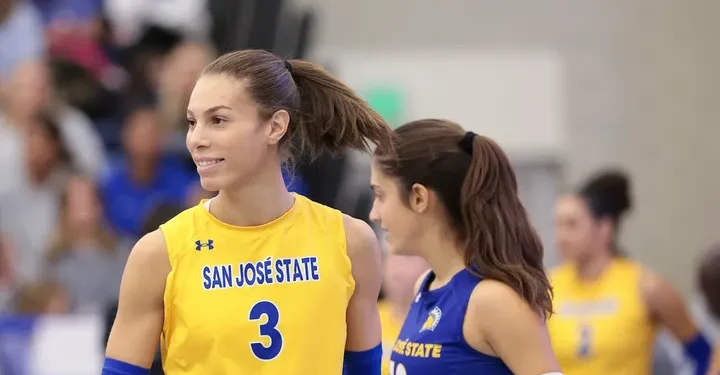A federal judge ruled Monday that San Jose State volleyball player Blaire Fleming, a transgender athlete, will be allowed to compete in the Mountain West Conference tournament and for the remainder of the season. This decision, handed down by Judge Kato Crews, has sparked both support and outrage.
The Case
Fleming’s eligibility was challenged by a lawsuit filed by 12 athletes, including SJSU co-captain Brooke Slusser and other players from Mountain West schools. The suit alleged Title IX violations and sought to ban Fleming from competition, citing safety concerns and fairness in women’s sports.
However, Judge Crews ruled against the motion for an emergency injunction, stating that granting it would cause undue disruption to the tournament and teams involved.
Mixed Reactions
This ruling has led to intense debate:
- Women’s sports advocate Riley Gaines expressed frustration, tweeting, “A federal judge just ruled in favor of a male athlete who has been injuring defenseless women in volleyball for years.”
- Other critics took to social media, with one user calling for a boycott of the tournament and another labeling the decision as a “clown world moment.”
San Jose State defended the decision, emphasizing inclusivity:
“San Jose State University will continue to support its student-athletes and reject discrimination in all forms. Our team looks forward to competing in the Mountain West volleyball tournament this week.”
The Bigger Picture
The presence of transgender athletes in women’s sports has been a polarizing topic. Fleming’s opponents argue this raises concerns about fairness and safety, especially given the physical differences between biological sexes. Advocates for inclusion argue that all athletes deserve equal opportunities to compete.
What’s Next?
San Jose State, seeded No. 2 in the tournament, has already benefited from multiple forfeitures by teams refusing to compete against them. Fleming, who ranks third in the Mountain West with 3.86 kills per serve, will continue to play a key role in their championship bid.
This case highlights the growing complexity of balancing inclusivity and fairness in sports. What are your thoughts? Should policies be reexamined, or does this decision reflect progress?





















Your article helped me a lot, is there any more related content? Thanks!